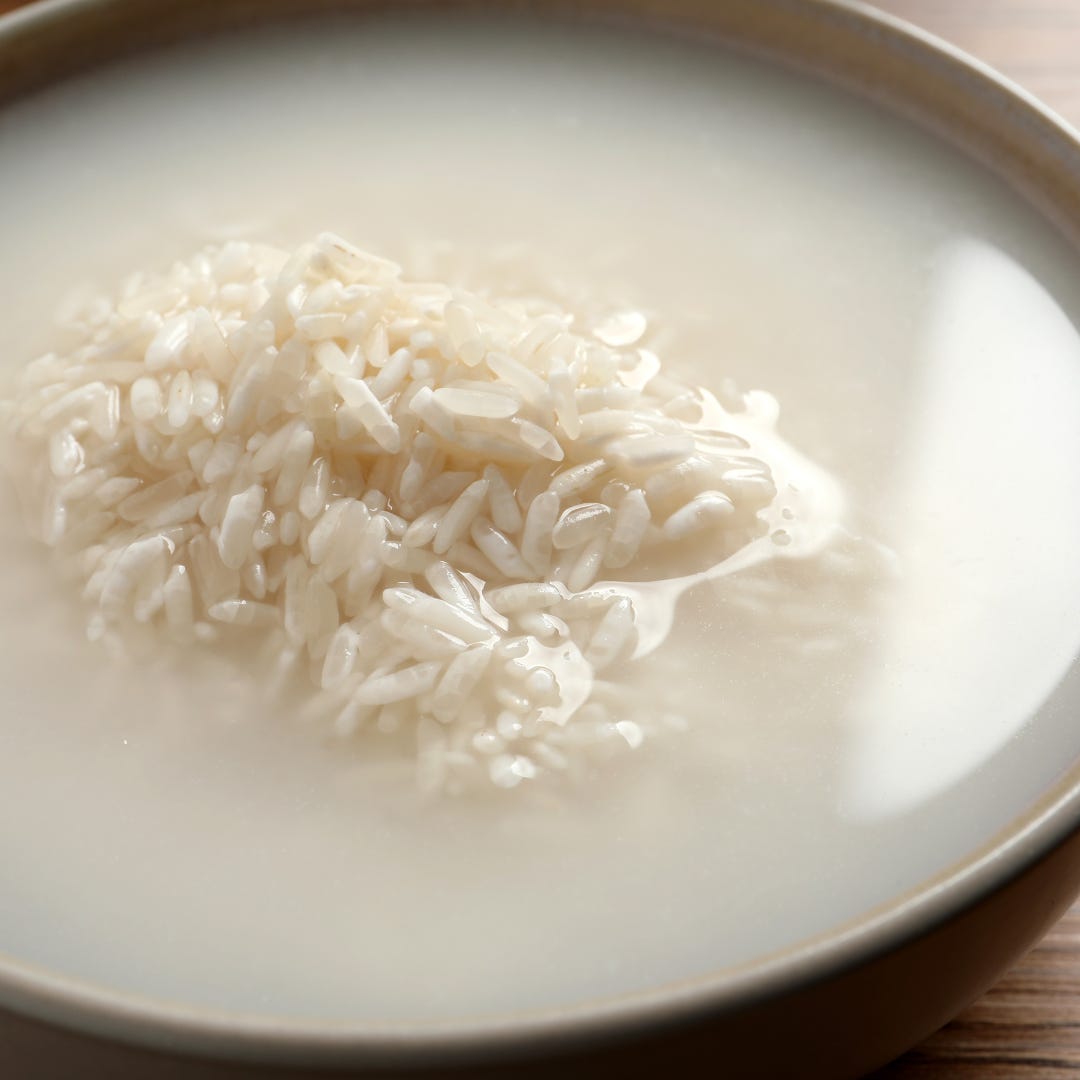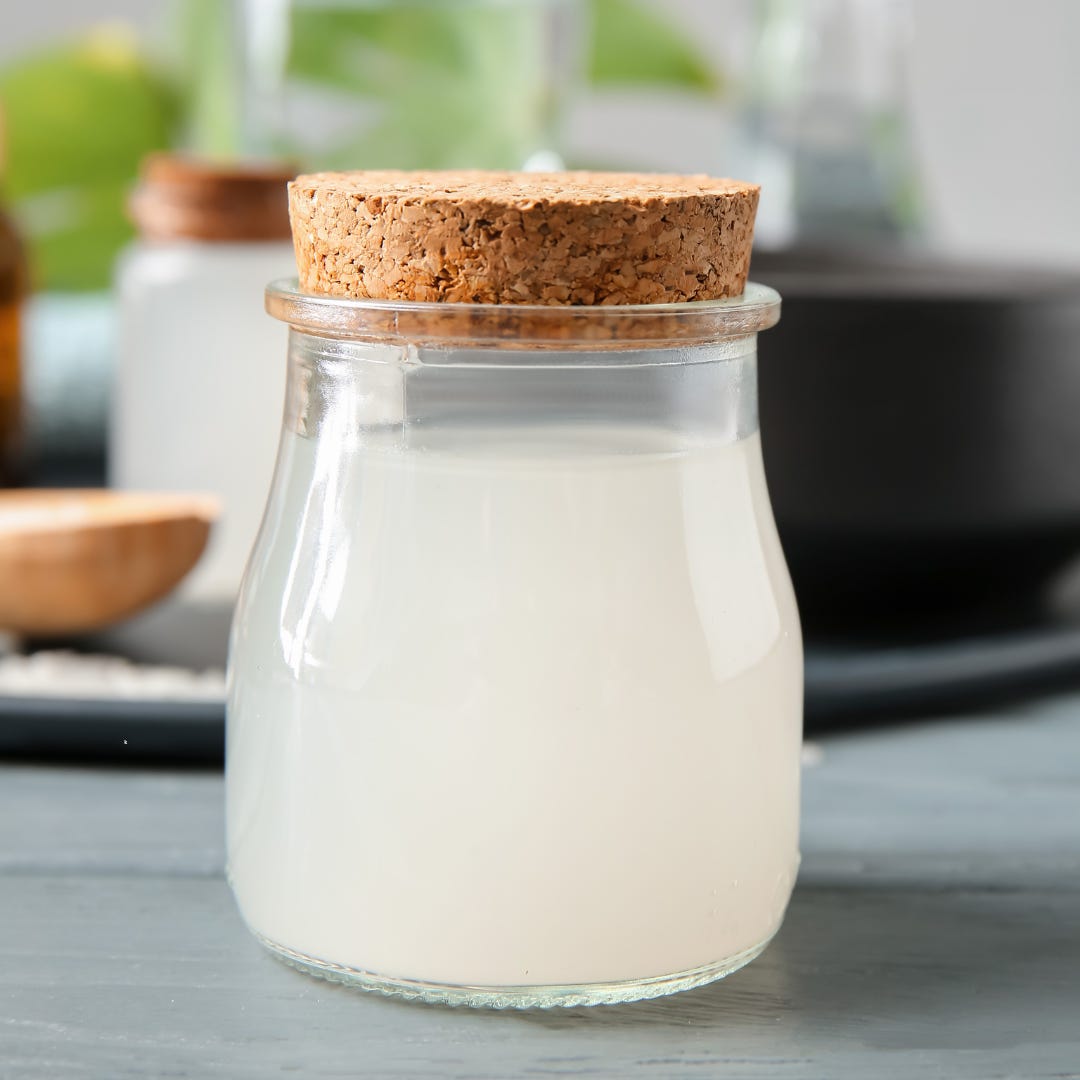I’ll be the first to admit, I love a TikTok trend. I love how a dance trend can bring families together, and how a catchphrase trend can unite us with its demure, cutesy, and oh-so-mindful charm (did you catch that?!). But some trends can be more meaningful and lasting. Ones that help you drink more water (Watertok), consume less and save money (underconsumption core), and even help you lose weight… which is what I want to focus on today.
If you haven’t yet encountered the rice water side of TikTok, this trend is making waves in the weight loss conversation on the app—GLP-1s still dominate, but the discussion is diversifying.
The rice water trend is actually something to pay attention to because it seems to have some merit.
So, what is the rice water trend anyway?
The rice water trend for weight loss on TikTok involves drinking the water left over after cooking rice. Some people just soak rice in hot water and discard the grains. Advocates of this practice claim that rice water can aid in weight loss by boosting metabolism, reducing appetite, and providing a low-calorie source of nutrients. This trend has gained popularity as part of a broader movement toward natural, DIY health remedies. It makes sense, with more and more people becoming frustrated with traditional medicine.
To make rice water, rice is boiled in water, and the leftover starchy water, which is often slightly cloudy, is consumed as a beverage. People typically drink rice water either warm or cold, often on an empty stomach in the morning.
Some suggest that rice water may boost metabolism, though this claim isn't strongly supported by scientific evidence. That said, rice water contains trace amounts of vitamins and minerals, which some believe can support overall health and weight management.
The trend’s popularity can be attributed to its simplicity and natural appeal. TikTok often revives traditional practices, and rice water has been used in many cultures for generations for various health benefits. Viral videos of people claiming to have lost weight by drinking rice water have also fueled its rise—likely influenced by our current weight-loss-obsessed world (thank you, Ozempic).
Now, the *real* reason rice water may help with weight loss is resistant starch.
The resistant starch theory is linked to the rice water trend because resistant starch has potential health benefits, such as improved gut health and weight loss. Resistant starch is a type of carbohydrate that resists digestion and acts like fiber, promoting fullness and reducing calorie absorption. When rice is cooked and cooled, resistant starch forms, leading some to believe that rice water might contain these benefits.
So, this is likely why people are seeing results. If someone has never done any meaningful work on their gut health and starts giving their body resistant starch (which is amazing for the gut and blood sugar), it makes sense that their body would respond positively.
But it’s not all skinny jeans and roses—there are some downsides.
Most people who have hopped on this trend say that you mustn’t wash the rice first—the water must be from the first wash. But this makes some people squirm because rice isn’t always safe.
Rinsing rice before cooking is a common practice for several reasons. First, it helps remove excess surface starch that can make rice sticky or clump together during cooking—though this is the starch we want. But rinsing rice also removes any dirt, dust, or debris that might be present from the milling process. In some cases, rinsing rice can also help reduce the levels of certain contaminants, such as arsenic, which can be present in trace amounts in rice. Although rinsing doesn’t remove all of these contaminants, it can help lower their concentration, particularly when combined with cooking methods like boiling in excess water.
Interestingly enough, organic rice tends to have higher levels of these contaminants, so if you decide to try this trend, opt for regular—non-organic—rice.
My Experience
I tried this every day for one week, and I’ve got to say, it worked. Day one, I was down a pound. Day two, I was down another pound, and each day after was the same. So it works. But this could also be attributed to me developing the walking challenge I’m running in the fall and taking over 10,000 steps per day. Who’s to say?
Now, some people freak out when they hear that others are drinking the water that rice was washed in, because of the aforementioned contaminants. But I would argue that the fake diet foods and punishing calorie restrictions I see on TikTok are far more damaging and harmful—but that’s just my opinion.
I don’t see any real harm in trying this to kickstart a weight loss endeavor, but it *must* be paired with exercise and a whole food diet—otherwise, what’s the point? This should be viewed as a catalyst to a healthier you, so commit to the whole transformation.
Since my experiment, I haven’t continued with rice water. But maybe during the holidays, when gut health could always use a boost, I might revisit it.
Would you try this?! I’d love to know!








Love this! Thank you! Did you rinse your rice first before cooking?
This is actually a drink in Mexico and the South West called Horchata.